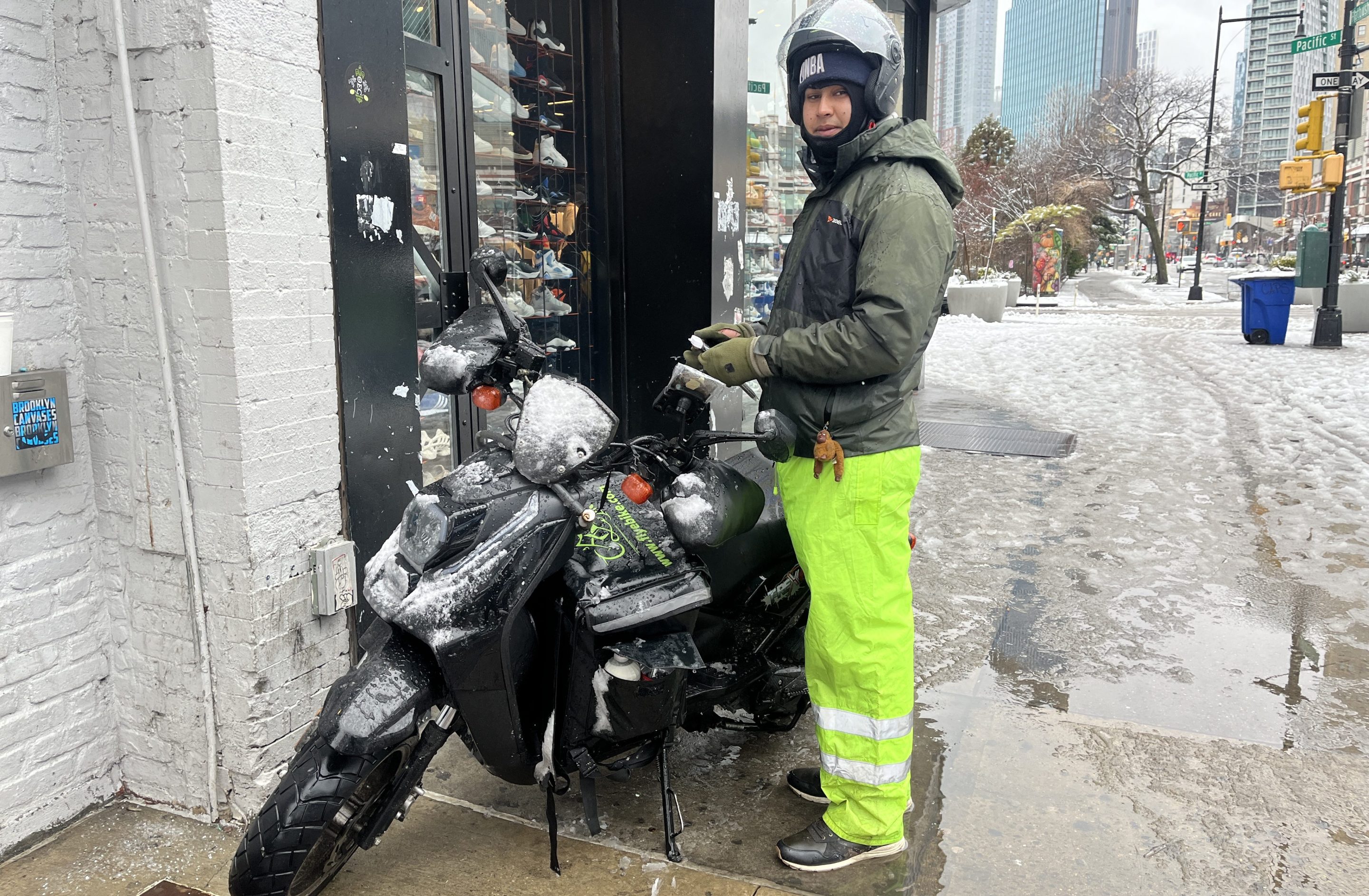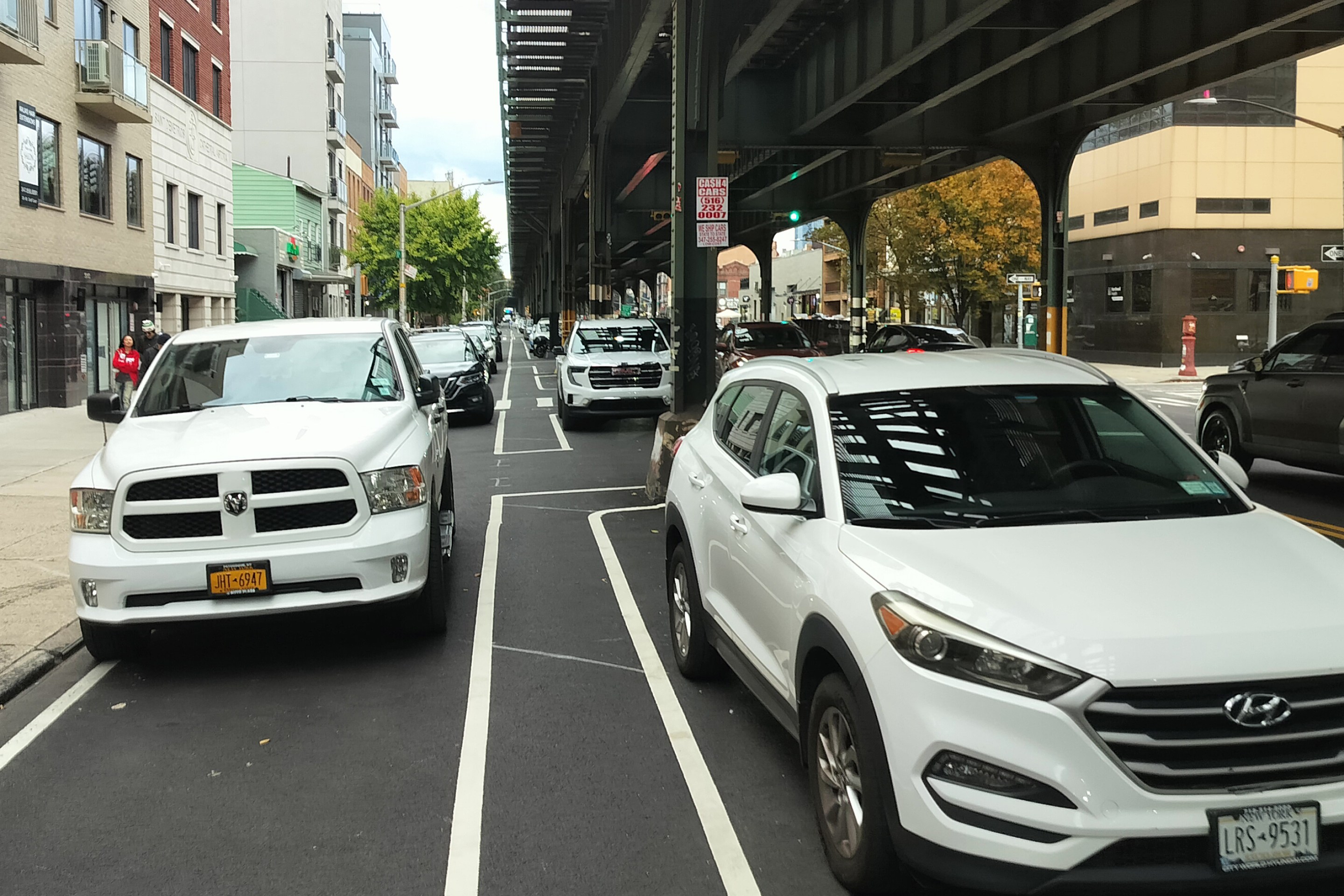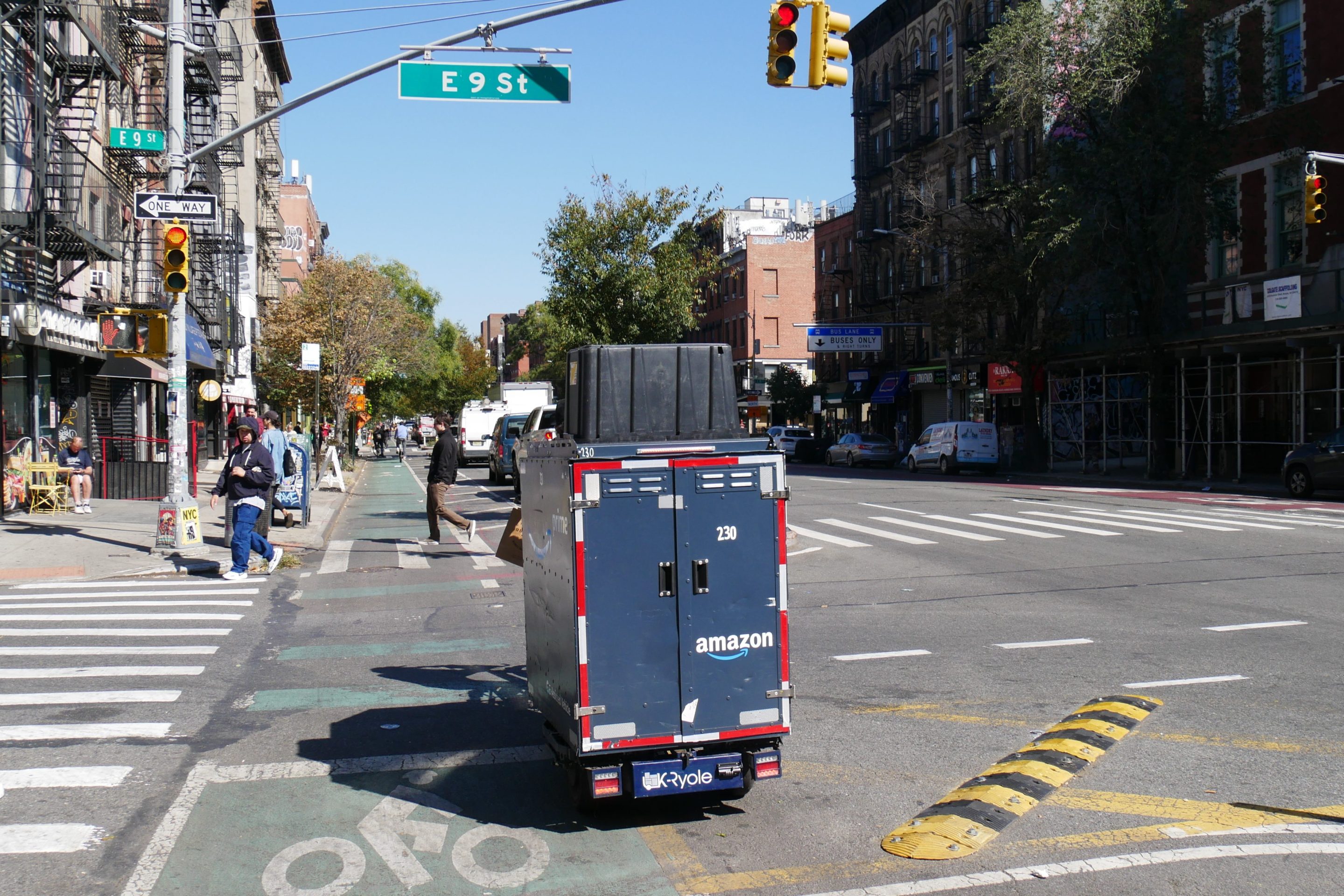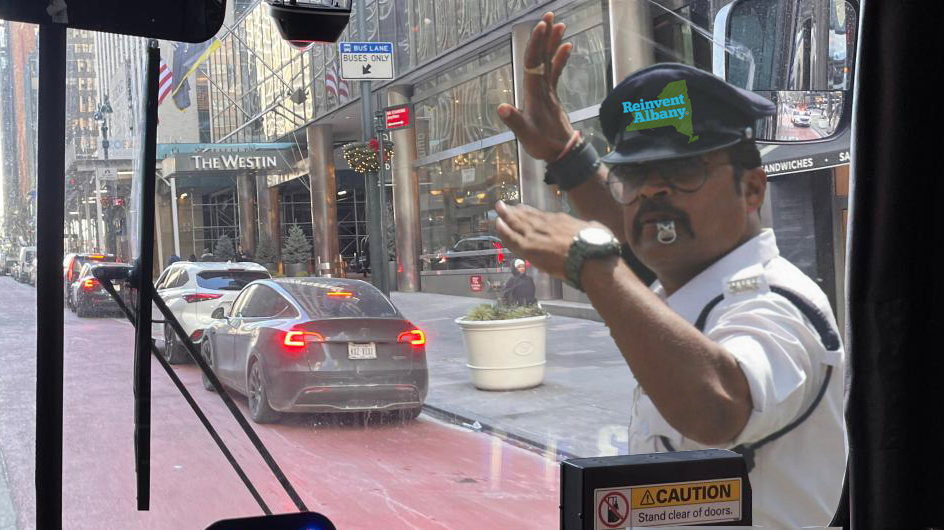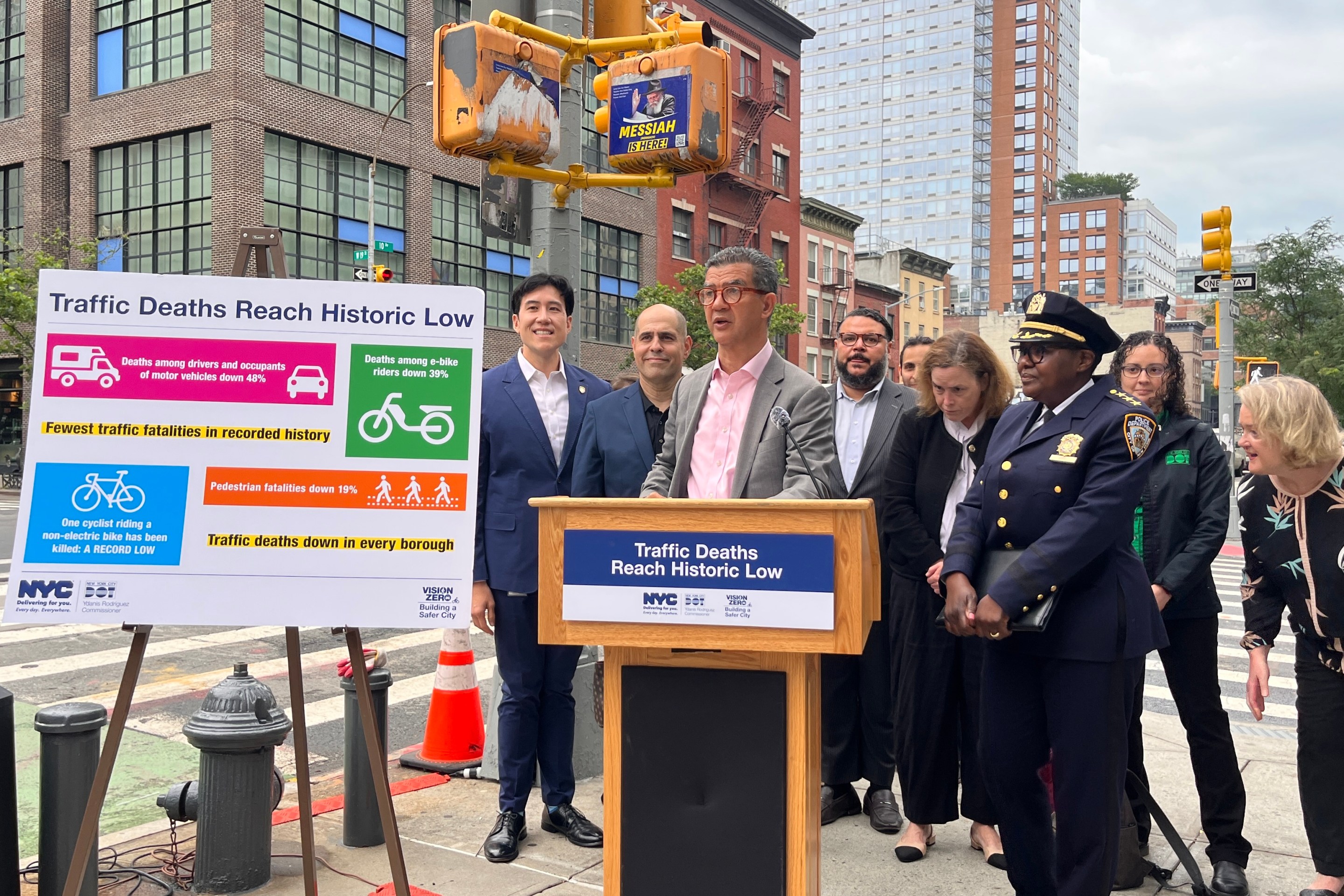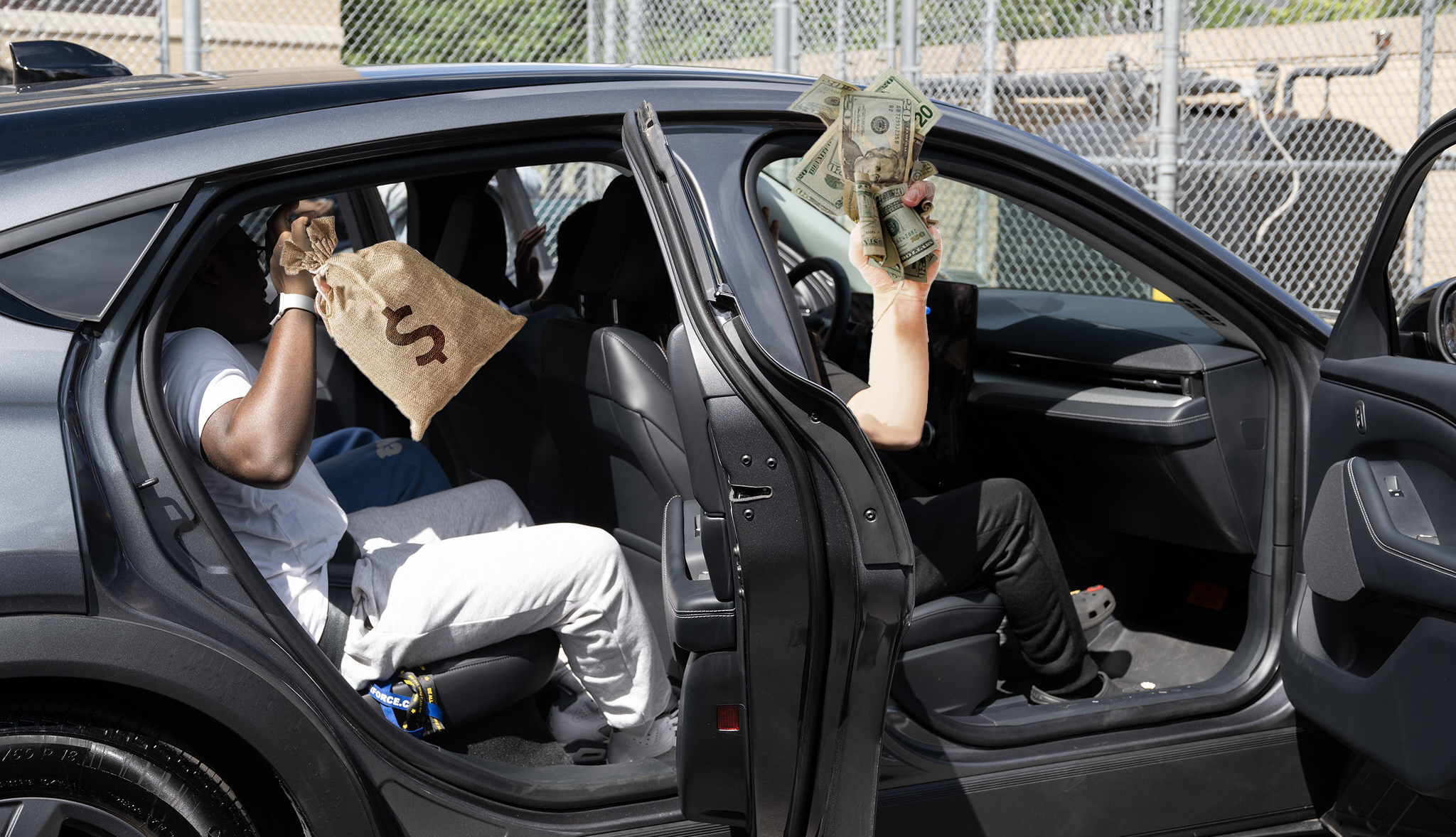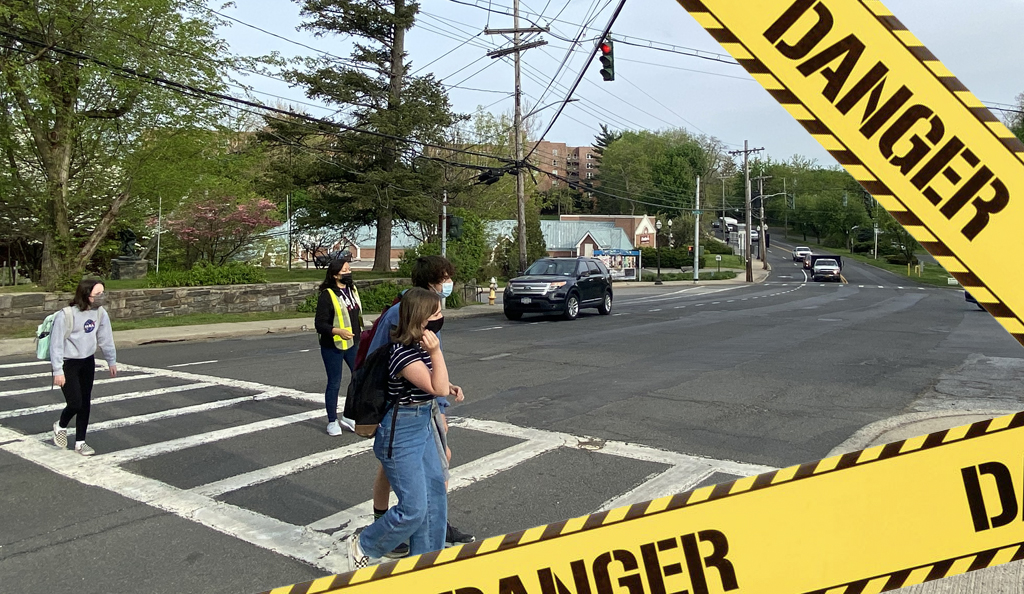Deliveristas are increasingly registering their mopeds as required by law, an analysis of DMV records shows — the result of intense education by advocates to help new immigrants navigate an unfamiliar bureaucracy in the face of an NYPD crackdown on workers' essential tool.
DMV data show that ZIP codes in neighborhoods where many delivery workers live now having the most registered mopeds in the city: for example, there are 724 mopeds registered in Queens, up from 578 in late 2022. Expanding the definition of moped to small motorcycles favored by deliveristas reveals an epicenter with 334 of the vehicles registered in the ZIP code which includes Corona, Queens.
The reason for the rise in registrations is simple, said one worker.
“If you have plates, [the police] won’t summons you,” Junior Pichardo told Streetsblog the other day on Flatbush Avenue. “They won’t bother you.”
Pichardo, 26, came to New York two years ago from the Dominican Republic. His insurance and registration on his gas-powered moped cost him $450 last year, a high price for someone whose wages keep him in the ranks of the working poor. But it was a price that he was willing to pay for the upside.
“If you have a crash or anything, or if the moped gets stolen, if you don’t have plates, you have a problem," he added.
Pichardo is among many workers who operate in the chasm between risk and reward in the fast-paced industry. He admitted to attaching a nylon strap over part of his license plate to evade speed and red-light tickets, but said the hassle from cops over the covered plate was not a big deal.
It’s a common practice for moped riders to partially cover their plates.
“The reality is it’s illegal,” he said of the covered plate. “That we know. But they [police] know we just use it for work and to get the food delivered as fast as possible,” he said.
That said, moped riders do receive automated speed-enforcement tickets — and are receiving more of them now that they are registering.
Between Jan. 1 and June 30, 2023, 406 different moped users were ticketed because their rides had plates. In the next comparable six-month period — July 1 to Dec. 31 — that number rose to 516 moped users.
Gas-powered mopeds have become a favorite among NYC delivery workers because they can take their riders farther and faster in an industry where every minute counts.
They also come with more risks for their riders and other road users alike, with police recording more crashes involving the vehicles over the past few years. It’s not clear if the increase is the result of more of the vehicles being registered or simply that cops have gained a familiarity with how to classify them in their crash reports. Nonetheless, it’s a trend that looks scary — until it's put in context (see second chart).
Police have stepped up enforcement on unregistered mopeds lacking license plates, seizing thousands of the vehicles last year.
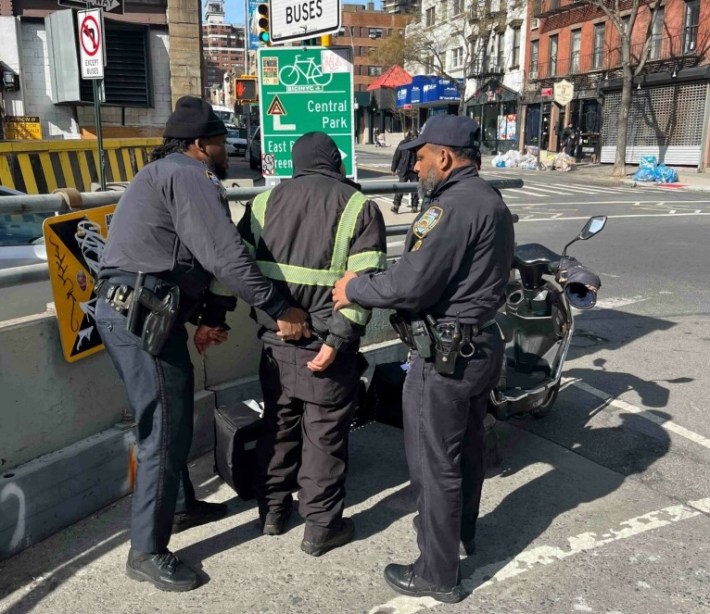
As a result of crackdowns that threaten their livelihoods, workers – many of them immigrants – are learning how to navigate an unfamiliar bureaucracy.
“It’s necessary to have plates,” agreed Eric Macario, 24, who rides an electric moped to earn a living after coming to the U.S. from Guatemala.
Macario’s moped is what DMV defines as a class “C” limited-use motorcycle, which is required to have plates on city roadways. Its rider must also have a driver’s license, something advocates have been helping delivery workers to obtain. (Mopeds can be registered even if their owners do not have a driver's license, but can't be used, according to DMV.)
“There was a complete lack of information in the sense of how we can use these devices by navigating the right system. Many don’t know when they purchase the vehicles, they’re not informed that they require insurance,” said delivery worker William Medina, 29, with the Worker’s Justice Project. Medina also uses a moped to deliver food.
Medina blamed, in part, stores that sell the vehicles without flagging for their customers that they’ll need to register and insure the vehicles to use them legally (though that is slowly changing).
“We know the responsibility is ultimately with the agencies and those who sell these type of vehicles without the documents prepared,” he said.
State Sen. Brad Hoylman-Sigal (D-West Side) and Assembly Member Alex Bores (D-East Side) introduced legislation to require that sellers register the mopeds before workers can use them on the streets, but that’s still just a bill. For now, advocates are helping workers figure out how to get the mopeds they already own registered.
“Many deliveristas end up accessing these devices without much information," said Ligia Guallpa, executive director of the Worker's Justice Project. "The reason many of them find out that they require registration and licensing is when the police take their devices or when the confiscate the mopeds or when they get many tickets.
“I think they’ve helped 200 deliveristas or a little more get their driver’s license,” Guallpa said.
Still, there appears to be work to be done to get more workers on legal transport for their jobs.
Another 24-year-old waiting in the snow on Tuesday outside Chik-Fil-A was a man from Turkey who gave his name as Mike. He said he rented his unplated moped for $100 a week from a friend in Brooklyn.
“Hopefully it’s going to be good,” he said before taking off on Flatbush Avenue.
— with Gersh Kuntzman
